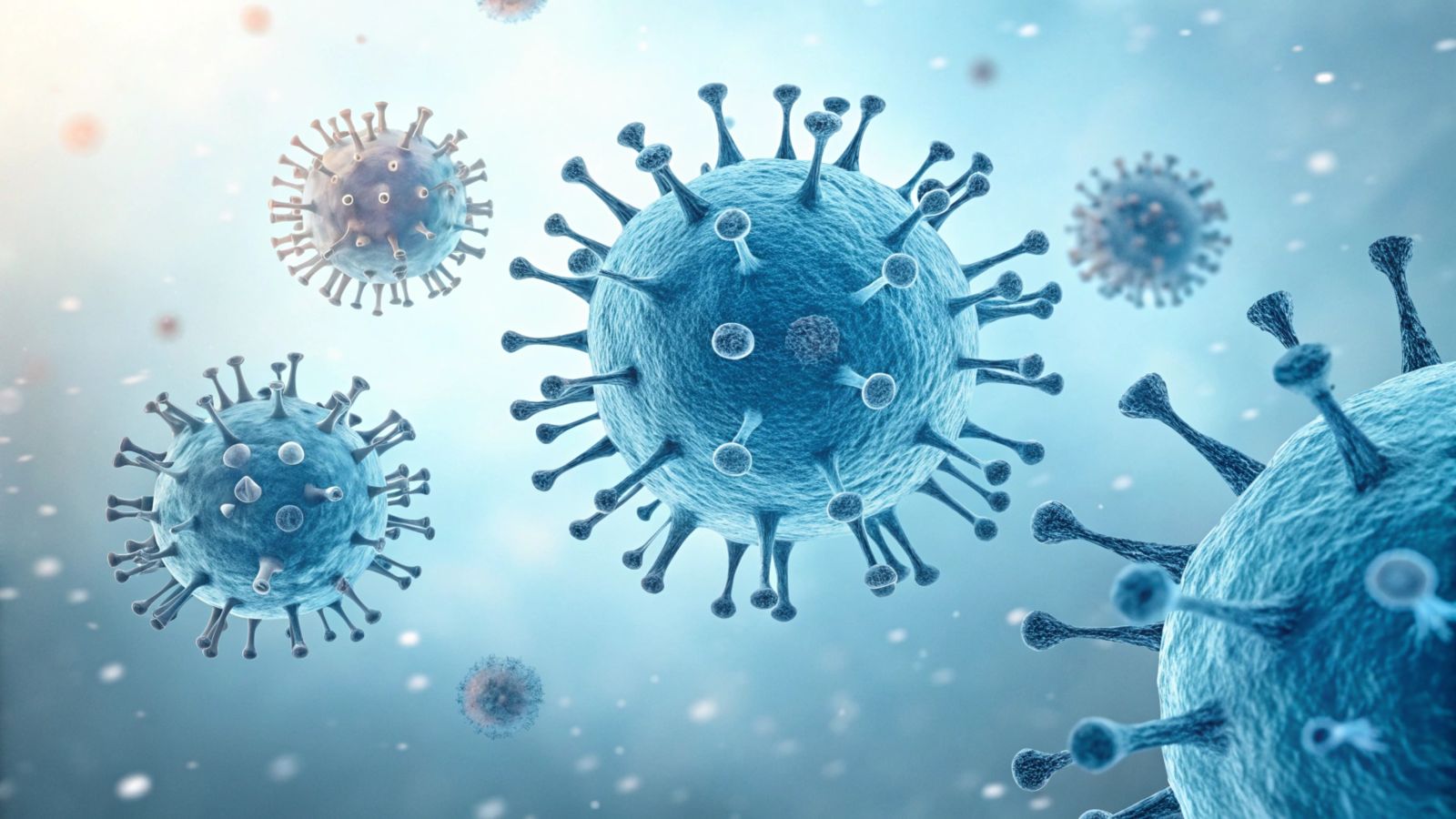Cancers: new treatments thanks to COVID-19? 🧬
Published by Adrien,
Source: The Conversation under Creative Commons license
Other Languages: FR, DE, ES, PT
Source: The Conversation under Creative Commons license
Other Languages: FR, DE, ES, PT
Follow us on Google News (click on ☆)
A new and intriguing study was published in November 2024 in the Journal of Clinical Investigation. Its results reveal that the SARS-CoV-2 virus, which caused the COVID-19 pandemic, could advance the fight against cancers.

Let us make it clear from the outset that this surprising discovery, based on research conducted on mice, absolutely does not mean that one should intentionally try to catch COVID-19... However, it sheds light on the complex interactions between the immune system and cancer cells, opening new avenues for eliminating them.
The importance of the immune system in fighting cancer is backed by extensive evidence. It is a major area of interest (to which I contribute through my own research), and today a significant number of medications target the immune system to unlock its anti-tumor potential.
The authors of the study published in the Journal of Clinical Investigation focused on a specific type of immune cell, white blood cells called monocytes. These play a vital role in defending the body against infections. However, in cases of cancer patients, tumor cells can sometimes hijack monocytes and use them to their advantage to shield themselves from the immune system, thereby advancing the disease.
Interestingly, researchers have discovered that a severe infection with the SARS-CoV-2 coronavirus causes the body to produce a particular type of monocyte with unique anti-cancer properties. These "induced" monocytes generated during the illness are specifically "trained" to target the virus but also retain their ability to fight cancer cells.
To understand this mechanism, one must look at the genetic material of the SARS-CoV-2 virus, ribonucleic acid (RNA). Scientists found that the monocytes induced after infection possess a special receptor on their surface that can effectively bind to a specific sequence of the SARS-CoV-2 RNA. As Ankit Bharat, one of the researchers from Northwestern University in Chicago (USA), who participated in these studies, explained: "If you consider the receptor on the monocyte as a lock, the coronavirus RNA is the key that fits it perfectly."
Remarkable results
To test whether these cells could have an effect on cancer, the research team conducted experiments on mice with advanced-stage (stage 4) cancers, including melanomas, and lung, breast, and colon cancers.
They administered a substance to the rodents that triggered an immune response imitating a severe immune reaction to SARS-CoV-2 infection, thereby inducing the production of these special monocytes in their bodies. The results were remarkable: in all four types of cancer studied, the tumors began to shrink.
While tumors are known to "convert" ordinary monocytes into protective cells, these induced monocytes retained their anti-cancer properties. Moreover, they were able to migrate to tumor sites, a feat most immune cells cannot achieve.
Once at the tumor site, they activated NK (Natural Killer) cells, immune cells capable of killing tumor or infected cells. These NK cells then attacked the cancer cells, causing the tumors to shrink. This mechanism is particularly exciting as it paves the way for a new approach to fighting cancer.
An alternative to conventional immunotherapies?
Currently, doctors and researchers place great hope in anti-cancer immunotherapies. These treatments aim to stimulate the immune system to destroy tumor cells. A specific type of immune cell, T lymphocytes, plays a central role in many of the immunotherapies used today.
However, despite promising results, these approaches only work in 20 to 40% of cases. They often fail when the patient's body cannot produce enough functional T cells. The dependency on T lymphocytes is currently considered a major limitation of these methods.
The new mechanism identified by Northwestern University researchers could provide a way to eliminate cancer cells without relying on T lymphocytes, potentially offering a solution for patients who do not respond to conventional immunotherapies.
Results yet to be confirmed in humans
It is important to note that this study was conducted on mice. Clinical trials will be needed to determine if this mechanism applies to humans. It is probable since it involves a pathway that most cancers use to spread throughout the body.
These findings could have implications for vaccine production. Indeed, current COVID vaccines are unlikely to trigger this mechanism because they do not use the virus's complete RNA sequence. However, it could be possible to develop others capable of stimulating the production of these anti-cancer monocytes identified in the study.

The concept of "trained immunity"
The implications of this study extend beyond COVID-19 and cancer. It highlights how our immune system's response to one type of threat can enhance its effectiveness against another. This concept, known as "trained immunity," is an exciting field of research that could lead to new approaches for treating a range of diseases.
It is crucial to emphasize that this concept does not mean people should try to contract COVID-19. Catching this illness is not a way to fight cancer. Moreover, a severe SARS-CoV-2 infection can be fatal and have numerous long-term health consequences. It may also be particularly dangerous for cancer patients, as I have described in my research.
The valuable information from this study could lead to the development of safer and more targeted treatments in the future. Although much work remains to be done, it already enhances our understanding of the complex relationship between viruses, the immune system, and cancer.
As we continue to face the ongoing consequences of the COVID-19 pandemic, including long COVID, and as SARS-CoV-2 infections persist, these results emphasize the immense importance of fundamental research. Such research advances our understanding of human biology and disease, paving the way for sometimes unexpected medical breakthroughs.